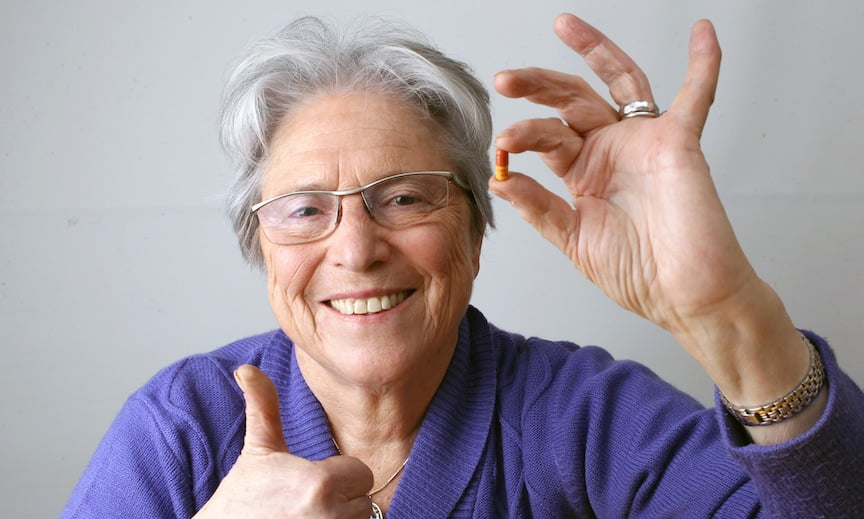This story is everything we love here at NoCamels: Breakthrough Israeli medical research that benefits millions around the world; An audacious female scientist; And a well-deserved prize at the end.
The daring whizz we are referring to is Professor Emeritus Marta Weinstock-Rosin, a WWII survivor who in the 1990s developed what is now one of the most commonly-used treatments for Alzheimer’s and Parkinson’s, Rivastigmine. Now her achievements just crowned her this year’s Israel Prize winner for Medicine, largely regarded as the state’s highest honor.
The Israel Prize is traditionally given in a ceremony that takes place on Israeli Independence Day, and is attended by the prime minister, the president, the Knesset speaker and the Supreme Court president.
Related articles
- Study: People Who Treat Alzheimer’s Patients Should Have Creative Hobbies
- Dan Shechtman Talks To NoCamels About Winning The Nobel Prize And The Future Of Education
Weinstock-Rosin was the lead developer for what would eventually become the Novartis Exelon Patch, the only FDA-approved skin patch for the treatment of Alzheimer’s disease.
Rivastigmine, the generic name for Exelon, prevents the breakdown of acetylcholine by an enzyme called acetylcholinesterase. The more acetylcholinesterase, the better nerve cells can communicate with each other, Weinstock-Rosin’s research showed, so by preventing the breakdown of acetylcholine, the progress of Alzheimer’s can be stopped, or even halted.
Novatis, which acquired Exelon from the Hebrew University’s technology transfer company, Yissum, generated more than $1 billion in sales of Exelon in 2012. As there currently is no cure for Alzheimer’s, Exelon is considered one of the more effective treatments for the disease.
Sign up for our free weekly newsletter
SubscribeFrom escaping the Nazis to battling Alzheimer’s
Weinstock-Rosin is married with four children and 20 grandchildren. She was born in Vienna in 1935 and at the age of four escaped the Nazis with her family to England, where she stayed for 30 years. She studied Pharmacology at the University of London, where she obtained her BPharm and an MSc. She received her PhD at St. Mary’s Hospital Medical School and later went back to the University of London to become a lecturer in pharmacology.
In 1969, she moved to Israel with her husband and children and joined Tel Aviv University’s medical faculty. From 1976-77 she took a research sabbatical at the US National Institutes of Health and received a grant from the NIH’s National Institute on Drug Abuse for her research on the mechanism of action of opiates.
She became a professor at the Hebrew University in 1981 and head of its School of Pharmacy in 1983. Her current research is focused on drugs that improve brain function and memory in patients with degenerative diseases of the central nervous system.
Weinstock-Rosin is also the co-developer, with Professor Moussa Youdim of the Technion Israel Institute of Technology, of Ladostigil. During its development Weinstock-Rosin discovered that at low doses Ladostigil prevents brain degeneration and memory impairment in aged rats. The drug is now undergoing Phase II clinical trials in Israel and Europe for the prevention of Alzheimer’s disease.
Photo: Nati Shohat/Flash 90
Related posts

Israeli Medical Technologies That Could Change The World

Harnessing Our Own Bodies For Side Effect-Free Weight Loss

Missing Protein Could Unlock Treatment For Aggressive Lung Cancer




Facebook comments